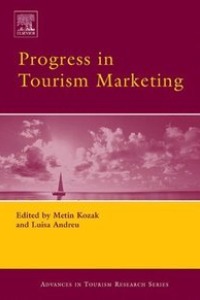
Interconnected Worlds: Tourism in Southeast Asia
Bok av K.C. Ho
One of the most significant changes in tourism in recent years has been the concept of interconnections, which is evident at various levels of tourism planning. Strategic alliances between rival companies, vertical integration between and across firms, collaboration between public and private sectors and partnerships between countries and regions have become common practice in contemporary tourism. This book addresses this theme from a Southeast Asian perspective by focusing on the way in which individual countries have coalesced (or have attempted to coalesce) with each other and the 'outside' world under the banner of regionalism and globalisation.
Part One examines the political discourse behind tourism, bringing to light some questions regarding the tensions associated with the interconnections. Part Two focuses on deterritorialisation and the development of new regionalisms, paying specific attention to collaborative efforts in tourism development and to fostering greater movement within and in and out of the region. Part Three presents the sociocultural implications of tourism as a globalising phenomenon, covering not only global-local tensions but also 'regional identities' and 'pan-Asian' heritage, especially as portrayed to outsiders. Part Four pulls together ecological and community concerns under the umbrella of ecotourism - an important aspect of the tourism potential of the region - examining the way nature is interpreted and promoted, as well as the collaborative efforts to develop sustainable tourism and joint environmental monitoring systems. Part Five itemises potentials and problems which arise when Southeast Asia latches onto the new spatial structures of economic interaction. The challenges of global interdependency are re-examined as vulnerabilities and volatilities associated with tourism interconnections become more apparent.
By researching and initiating dialogues on regional and global interconnections, it is hoped that this book will add value to current research and debates in tourism, economic geography, geopolitics, cultural politics, globalisation and the financial and environmental crises in Southeast Asia.







